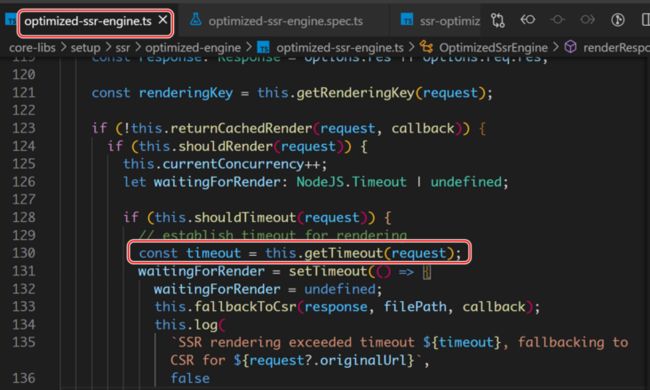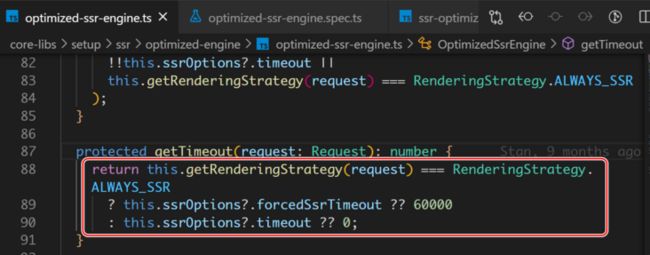- 深入解析 Redis 实现分布式锁的最佳实践
煜bart
机器人redispython
前言在分布式系统中,多个进程或线程可能会同时访问同一个共享资源,这就可能导致数据不一致的问题。为了保证数据的一致性,我们通常需要使用分布式锁。Redis作为高性能的内存数据库,提供了一种简单高效的方式来实现分布式锁。本文将深入探讨如何使用Redis来实现分布式锁,并介绍一些优化技巧和最佳实践。---一、为什么需要分布式锁?在单机环境下,我们可以使用synchronized、Lock等方式来控制并发
- 基于Spring Boot的分布式任务调度实践
Blossom.118
分布式系统与高性能计算领域wpfspringbootjava后端分布式spring开发语言
在现代的分布式系统中,任务调度是一个常见的需求。无论是定时任务的执行,还是根据业务逻辑动态触发的任务,都需要一个高效、可靠的调度框架来管理。SpringBoot作为目前最流行的Java开发框架之一,提供了强大的依赖管理和快速开发的能力,结合分布式任务调度框架,可以极大地提升开发效率和系统的可维护性。本文将介绍如何基于SpringBoot实现一个分布式任务调度系统,主要涉及Elastic-Job框架
- 解释CALL_FORM,NEW_FORM和OPEN_FORM之间有什么区别?思维导图 代码示例(java 架构)
用心去追梦
java架构开发语言
CALL_FORM,NEW_FORM和OPEN_FORM之间的区别在OracleForms中,CALL_FORM、NEW_FORM和OPEN_FORM是用于管理和启动表单的不同命令。每个命令的行为和用途都有所不同,理解它们的区别对于正确构建和管理Forms应用程序非常重要。1.CALL_FORM定义:调用并运行另一个表单,但不会关闭当前表单。被调用的表单以模式对话框的形式显示,即用户必须完成或取消
- springboot自定义工具
johnrui
springbootjavaspring
springboot自定义工具上下文工具类上下文工具类你上下文工具类,获取注册的bean。publicclassSpringContextUtilsimplementsApplicationListener{protectedstaticApplicationContextcontext;@OverridepublicvoidonApplicationEvent(ApplicationPrepar
- 浏览器渲染流程
前端岳大宝
前端核心知识总结前端javascript
以下是关于浏览器渲染流程的系统梳理,涵盖基础原理、关键阶段、性能优化及进阶知识,帮助我们深入理解现代浏览器如何将代码转换为用户可见的像素:一、核心渲染流程(CriticalRenderingPath)浏览器渲染流程分为六个核心阶段,决定页面首次加载和更新的性能:1.构建DOM(DocumentObjectModel)过程:解析HTML生成DOM树(逐步解析,遇到可能阻塞)。阻塞因素:未添加asyn
- matplotlib使用大字体,粗线
weixin_34254823
python
2019独角兽企业重金招聘Python工程师标准>>>matplotlib在绘图时缺省的字体和线条都有些细,所以需要加粗一下importmatplotlib.pyplotaspltdefuseLargeSize(axis,marker_lines=None,fontsize='xx-large',fontproperties=None):'''将X,Y坐标轴的标签、刻度以及legend都使用大字体
- Android Compose 线性布局(Row、Column)源码深度剖析(十)
&有梦想的咸鱼&
AndroiodCompose原理Android开发大全android
AndroidCompose线性布局(Row、Column)源码深度剖析一、引言在Android应用开发的领域中,UI布局是构建用户界面的核心工作之一。良好的布局设计不仅能提升用户体验,还能使应用在不同设备上保持一致的视觉效果。随着Android开发技术的不断演进,JetpackCompose作为新一代的声明式UI框架应运而生。它以简洁的代码、高效的性能和强大的可维护性,逐渐成为开发者的首选。线性
- 网页版 123 分身数字人源码搭建,OEM贴牌
18538162800=余
音视频矩阵
在数字化时代的浪潮下,数字人技术蓬勃发展,网页版123分身数字人源码搭建为众多开发者和企业提供了实现个性化数字人应用的可能。本文将深入探讨其技术开发过程,从底层架构到关键技术实现,全方位解析如何构建一个功能强大的网页版数字人系统。技术架构设计前端展示层HTML5与CSS3:构建数字人的可视化界面,实现流畅的动画效果和交互元素。利用CSS3的过渡、动画属性,为数字人的动作、表情变化提供细腻的视觉呈现
- RRU 软件中 DPD(数字预失真)的全面测试方案
youngerwang
测试验证之禅道移动5G信息与通信测试覆盖率模块测试
RRU软件中DPD(数字预失真)的全面测试方案一、DPD原理在无线通信系统中,功率放大器(PA)用于放大射频信号以满足通信距离和覆盖范围的要求。然而,PA通常具有非线性特性,会导致信号失真,产生谐波和互调产物,影响通信质量。DPD(数字预失真)技术旨在通过对输入到PA的信号进行预失真处理,补偿PA的非线性失真,使经过PA放大后的信号尽可能接近理想的线性信号。其基本原理是通过对PA的输入输出信号进行
- SQL Server数据库表删除分区
MartinYangHJ
SQLServer数据库
在SQLServer中删除分区并将表恢复到非分区状态,需按以下步骤操作:一、合并所有分区1.检查现有分区结构首先确认表的分区方案和分区函数:--查看分区方案SELECT*FROMsys.partition_schemes;--查看分区函数SELECT*FROMsys.partition_functions;2.合并所有分区将所有分区合并为一个,使数据集中在单个分区中:--假设分区函数名为`pf_D
- 六种方法教你将Python源代码打包成exe
xuefeng_210
python开发语言linux
将Python源代码打包成可执行文件(exe)是一种常见的需求,它可以使我们的程序在没有安装Python解释器的环境中运行。在本文中,我们将介绍六种常用的方法来实现这个目标,并详细说明每种方法的使用过程。cx_Freezecx_Freeze是一个用于将Python脚本打包成可执行文件的工具。它可以将Python代码和依赖的库文件一起打包,并生成一个独立的可执行文件。使用cx_Freeze的步骤如下
- Python Excel操作新玩法:从零到高手掌握openpyxl
xuefeng_210
python自动化java
openpyxl是Python中一个强大的第三方库,用于操作Excel文件,它可以读取、写入和修改Excel文件,并且支持Excel文件中的样式、图表等元素。openpyxl使得在Python中处理Excel文件变得非常简单和高效。本文将从入门到精通地介绍openpyxl的使用方法,带你掌握在Python中处理Excel文件的技巧。目录安装和导入创建和保存Excel文件读取Excel文件写入Exc
- 动漫短剧小程序源码|动漫短剧app源码交付
weixin_707762673
小程序php
系统全部开源可二次开发,包部署上线上架,专业的售后团队以及技术服务公司,不转包不外包,完全自研技术团队。今天给大家带来一个超级给力的项目——动漫短剧小程序源码|动漫短剧app源码交付!这不仅是一套完整的解决方案,而且是针对那些想要进入火爆市场领域的朋友们的一把金钥匙!首先说一下背景吧。近年来随着短视频行业的爆发式增长,特别是微短剧、国漫等细分市场的快速崛起,让很多企业和个人看到了新的机会窗口。然而
- 【数据库】MySQL数据类型decimal详解以及对于float和double两种类型精度问题的探索
明璐花生牛奶
数据库mysql数据库经验分享
引言或许很多同学都很好奇为什么在数据库里要引入decimal这一种数据类型来表示小数?使用float和double这两种数据类型来表示小数为什么不可以?那是因为float和double这两种类型可能会出现精度问题如果本文出现了错误,还请路过的大佬在评论区指出,您的批评是我前进的动力!谢谢!decimal数据类型参考文献:https://cloud.tencent.com/developer/art
- 从零搭建Pytorch模型教程(七)单机多卡和多机多卡训练
AI大模型探索者
pytorch人工智能pythontransformer深度学习ai机器学习
前言本文主要介绍单机多卡训练和多机多卡训练的实现方法和一些注意事项。其中单机多卡训练介绍两种实现方式,一种是DP方式,一种是DDP方式。多机多卡训练主要介绍两种实现方式,一种是通过horovod库,一种是DDP方式。单机单卡训练前面我们已经介绍了一个完整的训练流程,但这里由于要介绍单机多卡和多机多卡训练的代码,为了能更好地理解它们之间的区别,这里先放一个单机单卡也就是一般情况下的代码流程。impo
- IPv6网络的可操作安全考虑——RFC9099解析(四)
黑带架构湿
IPv6安全网络安全安全
2.6记录和监控为了在发生安全事件或检测到异常行为的情况下进行取证(forensic)研究,网络运营商应记录多个信息片段。在某些情况下,这需要通过网络管理站对设备进行频繁的轮询。日志包括但不限于:在可用时,使用网络的所有应用程序(包括用户空间和内核空间)的日志(例如,网络运营商管理的web服务器;IPFIX数据【RFC7011】;SNMPMIBs或来自RESTCONF/NETCONF的YANG数据
- PyTorch基础知识讲解(一)完整训练流程示例
苏雨流丰
机器学习pytorch人工智能python机器学习深度学习
文章目录Tutorial1.数据处理2.网络模型定义3.损失函数、模型优化、模型训练、模型评价4.模型保存、模型加载、模型推理Tutorial大多数机器学习工作流程涉及处理数据、创建模型、优化模型参数和保存训练好的模型。本教程向你介绍一个用PyTorch实现的完整的ML工作流程,并提供链接来了解这些概念中的每一个。我们将使用FashionMNIST数据集来训练一个神经网络,预测输入图像是否属于以下
- 【半导体】:半导体制造工厂的数字化、智能化的新时代
不爱原创的Yoga
制造
半导体制造的背景:半导体产业是现代电子技术的基础,其发展深刻影响了人们的生活、通信、信息技术等各个领域。半导体材料具有介于导体和绝缘体之间的导电特性,因而被称为“半导体”。半导体制造是将这些半导体材料制成芯片,用于制造集成电路(IC)的过程。半导体产业的发展源于二十世纪中叶,随着晶体管的发明和集成电路的诞生,半导体技术逐渐成为电子工业的核心。从最早的晶体管到今天的微处理器和存储芯片,半导体制造在信
- 稳定运行的以Microsoft Azure Cosmos DB数据库为数据源和目标的ETL性能变差时提高性能方法和步骤
weixin_30777913
microsoftazure数据仓库etl性能优化
在以MicrosoftAzureCosmosDB数据库为数据源和目标的ETL(提取、转换、加载)过程中,性能变差时,可能有多种原因。提高以MicrosoftAzureCosmosDB为数据源和目标的ETL性能,通常涉及数据库配置、查询优化、并发执行、数据传输优化和使用CosmosDB特性等多个方面。通过以下方法和步骤,可以显著改善ETL性能:增加RU设置、优化分区策略;优化查询、使用批量操作;提高
- DJANGO 中间件的白名单配置
换个网名有点难
djangopython
在处理白名单内的多个Apps的URL链接时,可以采用以下几种方法来简化白名单的配置:1.使用reverse动态获取URL如果你在urls.py中为每个App的URL定义了名称(name参数),可以使用reverse函数动态获取这些URL,而不是硬编码路径。这样可以避免手动维护大量的路径字符串。Python复制fromdjango.urlsimportreverseclassLoginRequire
- Systemd 是 Linux 系统的 核心服务管理工具,负责管理系统的启动、服务生命周期和资源分配
潇锐killer
linux运维服务器
Systemd是Linux系统的核心服务管理工具,负责管理系统的启动、服务生命周期和资源分配。它替代了传统的SysVinit系统,提供更高效、统一的服务管理方式。以下是它的核心作用:一、核心功能功能作用说明服务生命周期管理启动、停止、重启服务(如Nginx/MySQL)依赖关系管理自动处理服务之间的依赖关系(例如:先启动数据库再启动Web服务)开机自启管理通过enable/
- 机器学习中的贝叶斯网络:如何构建高效的风险预测模型
AI天才研究院
DeepSeekR1&大数据AI人工智能大模型自然语言处理人工智能语言模型编程实践开发语言架构设计
作者:禅与计算机程序设计艺术文章目录机器学习中的贝叶斯网络:如何构建高效的风险预测模型1.背景介绍2.基本概念术语说明2.1马尔科夫随机场(MarkovRandomField)2.2条件随机场(ConditionalRandomField,CRF)2.3变量elimination算法2.4贝叶斯网络3.核心算法原理和具体操作步骤以及数学公式讲解3.1原理介绍1.贝叶斯网络基础2.贝叶斯网络构建风险
- 【机会约束、鲁棒优化】机会约束和鲁棒优化研究优化【ccDCOPF】研究(Matlab代码实现)
科研_G.E.M.
matlab概率论开发语言
个人主页欢迎来到本博客❤️❤️博主优势:博客内容尽量做到思维缜密,逻辑清晰,为了方便读者。⛳️座右铭:行百里者,半于九十。本文目录如下:目录1概述机会约束、鲁棒优化与ccDCOPF研究综述1.机会约束规划(ChanceConstrainedProgramming,CCP)在电力系统中的应用2.鲁棒优化(RobustOptimization,RO)在电力系统中的应用3.机会约束与鲁棒优化的协同方法
- MATLAB程序代编液压系统电机非线性滑膜伺服模糊控制simulink仿真
matlabgoodboy
matlab开发语言
在MATLAB中设计和仿真一个液压系统电机的非线性滑模伺服模糊控制系统,可以通过Simulink来实现。以下是一个大致的步骤指南,帮助你完成这个任务。由于这是一个复杂的系统,我们需要逐步分解问题并构建模型。1.系统描述假设我们有一个液压系统,其电机通过某种方式(例如泵)控制液压缸。目标是设计一个控制器,使得液压缸的位置或速度能够跟踪期望的轨迹。我们将使用滑模控制(SlidingModeContro
- kafka 的 message 包括哪些信息
weixin-80213251
javawebjavakafkahadoop
一个Kafka的Message由一个固定长度的header和一个变长的消息体body组成header部分由一个字节的magic(文件格式)和四个字节的CRC32(用于判断body消息体是否正常)构成。当magic的值为1的时候,会在magic和crc32之间多一个字节的数据:attributes(保存一些相关属性,比如是否压缩、压缩格式等等);如果magic的值为0,那么不存在attributes
- 红宝书第十一讲:超易懂版「ES6类与继承」零基础教程:用现实例子+图解实现
kovlistudio
前端es6javascript开发语言前端学习
红宝书第十一讲:超易懂版「ES6类与继承」零基础教程:用现实例子+图解实现资料取自《JavaScript高级程序设计(第5版)》。查看总目录:红宝书学习大纲一、ES6类的核心语法:把事物抽象成“模板”想象你要设计一款「动物养成游戏」,需要创建多种动物对象。ES6的class就是一个代码模板://基础类(Animal是模板,有名称和吃东西方法)classAnimal{constructor(name
- Flutter Dart 异步支持全面解析
顾林海
Flutter系列教程flutterandroid开发语言dart前端
引言在Flutter开发中,Dart语言提供了强大的异步支持机制。异步编程能够让程序在执行耗时操作(如网络请求、文件读写等)时,不会阻塞主线程,从而保证用户界面的流畅性和响应性。本文将详细介绍Dart中常见的异步编程方式,包括Future、async/await和Stream,并结合代码示例进行说明。1.同步与异步的概念同步编程在同步编程中,程序按照代码的顺序依次执行,当遇到耗时操作时,程序会阻塞
- 探索HTML5 Canvas的无限可能:一个丰富多彩的开源项目
黎情卉Desired
探索HTML5Canvas的无限可能:一个丰富多彩的开源项目去发现同类优质开源项目:https://gitcode.com/在这个充满活力的数字时代,JavaScript、HTML和CSS已经成为构建互动式网页体验的核心技术。今天,我们向您推荐一个独特而有趣的开源项目,它将这些技术结合在一起,创造出一系列生动活泼的可视化元素,包括时钟、计时器、地图、国际象棋、温度计等,让您在学习和实践中感受HTM
- 【广告架构day1】爱奇艺广告系统的演进之路:实践中的一些经验
软件真理与光
业务技术架构后端
本文来自爱奇艺的分享孙立伟。近年来爱奇艺快速发展,优质内容层出不穷,爱奇艺广告也随之发展和壮大,广告在线服务同时服务于品牌、中小、DSP等不同客户,形成了可以满足不同需求类型的较为完善的商业广告变现布局,广告库存涵盖视频、信息流、泡泡社交(爱奇艺的社交平台)和开机屏等多种场景。爱奇艺效果广告是2015年开始全新搭建的一个广告投放平台,随着信息流业务的增长,整个投放平台也经历了一次大的架构调整和多次
- 本地运行Claude 3.7:成本与灵活性的双重优势
真智AI
python数据库人工智能RAG开发语言
您可能会问:为什么要像Claude3.7这样的专有模型在本地运行,尤其是当我的数据仍需发送到Anthropic的服务器时?为什么还要费劲地将其集成到本地?其实,有两个主要原因。第一,成本。在本地运行模型可以让您只为实际使用量付费,而不是每月固定支付20美元。这对于使用频率低或有限的用户来说,更加经济实惠。第二,灵活性。通过本地使用API,您可以将模型无缝集成到代码编辑器中,构建适合您工作区的自定义
- js动画html标签(持续更新中)
843977358
htmljs动画mediaopacity
1.jQuery 效果 - animate() 方法 改变 "div" 元素的高度: $(".btn1").click(function(){ $("#box").animate({height:"300px
- springMVC学习笔记
caoyong
springMVC
1、搭建开发环境
a>、添加jar文件,在ioc所需jar包的基础上添加spring-web.jar,spring-webmvc.jar
b>、在web.xml中配置前端控制器
<servlet>
&nbs
- POI中设置Excel单元格格式
107x
poistyle列宽合并单元格自动换行
引用:http://apps.hi.baidu.com/share/detail/17249059
POI中可能会用到一些需要设置EXCEL单元格格式的操作小结:
先获取工作薄对象:
HSSFWorkbook wb = new HSSFWorkbook();
HSSFSheet sheet = wb.createSheet();
HSSFCellStyle setBorder = wb.
- jquery 获取A href 触发js方法的this参数 无效的情况
一炮送你回车库
jquery
html如下:
<td class=\"bord-r-n bord-l-n c-333\">
<a class=\"table-icon edit\" onclick=\"editTrValues(this);\">修改</a>
</td>"
j
- md5
3213213333332132
MD5
import java.security.MessageDigest;
import java.security.NoSuchAlgorithmException;
public class MDFive {
public static void main(String[] args) {
String md5Str = "cq
- 完全卸载干净Oracle11g
sophia天雪
orale数据库卸载干净清理注册表
完全卸载干净Oracle11g
A、存在OUI卸载工具的情况下:
第一步:停用所有Oracle相关的已启动的服务;
第二步:找到OUI卸载工具:在“开始”菜单中找到“oracle_OraDb11g_home”文件夹中
&
- apache 的access.log 日志文件太大如何解决
darkranger
apache
CustomLog logs/access.log common 此写法导致日志数据一致自增变大。
直接注释上面的语法
#CustomLog logs/access.log common
增加:
CustomLog "|bin/rotatelogs.exe -l logs/access-%Y-%m-d.log
- Hadoop单机模式环境搭建关键步骤
aijuans
分布式
Hadoop环境需要sshd服务一直开启,故,在服务器上需要按照ssh服务,以Ubuntu Linux为例,按照ssh服务如下:
sudo apt-get install ssh
sudo apt-get install rsync
编辑HADOOP_HOME/conf/hadoop-env.sh文件,将JAVA_HOME设置为Java
- PL/SQL DEVELOPER 使用的一些技巧
atongyeye
javasql
1 记住密码
这是个有争议的功能,因为记住密码会给带来数据安全的问题。 但假如是开发用的库,密码甚至可以和用户名相同,每次输入密码实在没什么意义,可以考虑让PLSQL Developer记住密码。 位置:Tools菜单--Preferences--Oracle--Logon HIstory--Store with password
2 特殊Copy
在SQL Window
- PHP:在对象上动态添加一个新的方法
bardo
方法动态添加闭包
有关在一个对象上动态添加方法,如果你来自Ruby语言或您熟悉这门语言,你已经知道它是什么...... Ruby提供给你一种方式来获得一个instancied对象,并给这个对象添加一个额外的方法。
好!不说Ruby了,让我们来谈谈PHP
PHP未提供一个“标准的方式”做这样的事情,这也是没有核心的一部分...
但无论如何,它并没有说我们不能做这样
- ThreadLocal与线程安全
bijian1013
javajava多线程threadLocal
首先来看一下线程安全问题产生的两个前提条件:
1.数据共享,多个线程访问同样的数据。
2.共享数据是可变的,多个线程对访问的共享数据作出了修改。
实例:
定义一个共享数据:
public static int a = 0;
- Tomcat 架包冲突解决
征客丶
tomcatWeb
环境:
Tomcat 7.0.6
win7 x64
错误表象:【我的冲突的架包是:catalina.jar 与 tomcat-catalina-7.0.61.jar 冲突,不知道其他架包冲突时是不是也报这个错误】
严重: End event threw exception
java.lang.NoSuchMethodException: org.apache.catalina.dep
- 【Scala三】分析Spark源代码总结的Scala语法一
bit1129
scala
Scala语法 1. classOf运算符
Scala中的classOf[T]是一个class对象,等价于Java的T.class,比如classOf[TextInputFormat]等价于TextInputFormat.class
2. 方法默认值
defaultMinPartitions就是一个默认值,类似C++的方法默认值
- java 线程池管理机制
BlueSkator
java线程池管理机制
编辑
Add
Tools
jdk线程池
一、引言
第一:降低资源消耗。通过重复利用已创建的线程降低线程创建和销毁造成的消耗。第二:提高响应速度。当任务到达时,任务可以不需要等到线程创建就能立即执行。第三:提高线程的可管理性。线程是稀缺资源,如果无限制的创建,不仅会消耗系统资源,还会降低系统的稳定性,使用线程池可以进行统一的分配,调优和监控。
- 关于hql中使用本地sql函数的问题(问-答)
BreakingBad
HQL存储函数
转自于:http://www.iteye.com/problems/23775
问:
我在开发过程中,使用hql进行查询(mysql5)使用到了mysql自带的函数find_in_set()这个函数作为匹配字符串的来讲效率非常好,但是我直接把它写在hql语句里面(from ForumMemberInfo fm,ForumArea fa where find_in_set(fm.userId,f
- 读《研磨设计模式》-代码笔记-迭代器模式-Iterator
bylijinnan
java设计模式
声明: 本文只为方便我个人查阅和理解,详细的分析以及源代码请移步 原作者的博客http://chjavach.iteye.com/
import java.util.Arrays;
import java.util.List;
/**
* Iterator模式提供一种方法顺序访问一个聚合对象中各个元素,而又不暴露该对象内部表示
*
* 个人觉得,为了不暴露该
- 常用SQL
chenjunt3
oraclesqlC++cC#
--NC建库
CREATE TABLESPACE NNC_DATA01 DATAFILE 'E:\oracle\product\10.2.0\oradata\orcl\nnc_data01.dbf' SIZE 500M AUTOEXTEND ON NEXT 50M EXTENT MANAGEMENT LOCAL UNIFORM SIZE 256K ;
CREATE TABLESPA
- 数学是科学技术的语言
comsci
工作活动领域模型
从小学到大学都在学习数学,从小学开始了解数字的概念和背诵九九表到大学学习复变函数和离散数学,看起来好像掌握了这些数学知识,但是在工作中却很少真正用到这些知识,为什么?
最近在研究一种开源软件-CARROT2的源代码的时候,又一次感觉到数学在计算机技术中的不可动摇的基础作用,CARROT2是一种用于自动语言分类(聚类)的工具性软件,用JAVA语言编写,它
- Linux系统手动安装rzsz 软件包
daizj
linuxszrz
1、下载软件 rzsz-3.34.tar.gz。登录linux,用命令
wget http://freeware.sgi.com/source/rzsz/rzsz-3.48.tar.gz下载。
2、解压 tar zxvf rzsz-3.34.tar.gz
3、安装 cd rzsz-3.34 ; make posix 。注意:这个软件安装与常规的GNU软件不
- 读源码之:ArrayBlockingQueue
dieslrae
java
ArrayBlockingQueue是concurrent包提供的一个线程安全的队列,由一个数组来保存队列元素.通过
takeIndex和
putIndex来分别记录出队列和入队列的下标,以保证在出队列时
不进行元素移动.
//在出队列或者入队列的时候对takeIndex或者putIndex进行累加,如果已经到了数组末尾就又从0开始,保证数
- C语言学习九枚举的定义和应用
dcj3sjt126com
c
枚举的定义
# include <stdio.h>
enum WeekDay
{
MonDay, TuesDay, WednesDay, ThursDay, FriDay, SaturDay, SunDay
};
int main(void)
{
//int day; //day定义成int类型不合适
enum WeekDay day = Wedne
- Vagrant 三种网络配置详解
dcj3sjt126com
vagrant
Forwarded port
Private network
Public network
Vagrant 中一共有三种网络配置,下面我们将会详解三种网络配置各自优缺点。
端口映射(Forwarded port),顾名思义是指把宿主计算机的端口映射到虚拟机的某一个端口上,访问宿主计算机端口时,请求实际是被转发到虚拟机上指定端口的。Vagrantfile中设定语法为:
c
- 16.性能优化-完结
frank1234
性能优化
性能调优是一个宏大的工程,需要从宏观架构(比如拆分,冗余,读写分离,集群,缓存等), 软件设计(比如多线程并行化,选择合适的数据结构), 数据库设计层面(合理的表设计,汇总表,索引,分区,拆分,冗余等) 以及微观(软件的配置,SQL语句的编写,操作系统配置等)根据软件的应用场景做综合的考虑和权衡,并经验实际测试验证才能达到最优。
性能水很深, 笔者经验尚浅 ,赶脚也就了解了点皮毛而已,我觉得
- Word Search
hcx2013
search
Given a 2D board and a word, find if the word exists in the grid.
The word can be constructed from letters of sequentially adjacent cell, where "adjacent" cells are those horizontally or ve
- Spring4新特性——Web开发的增强
jinnianshilongnian
springspring mvcspring4
Spring4新特性——泛型限定式依赖注入
Spring4新特性——核心容器的其他改进
Spring4新特性——Web开发的增强
Spring4新特性——集成Bean Validation 1.1(JSR-349)到SpringMVC
Spring4新特性——Groovy Bean定义DSL
Spring4新特性——更好的Java泛型操作API
Spring4新
- CentOS安装配置tengine并设置开机启动
liuxingguome
centos
yum install gcc-c++
yum install pcre pcre-devel
yum install zlib zlib-devel
yum install openssl openssl-devel
Ubuntu上可以这样安装
sudo aptitude install libdmalloc-dev libcurl4-opens
- 第14章 工具函数(上)
onestopweb
函数
index.html
<!DOCTYPE html PUBLIC "-//W3C//DTD XHTML 1.0 Transitional//EN" "http://www.w3.org/TR/xhtml1/DTD/xhtml1-transitional.dtd">
<html xmlns="http://www.w3.org/
- Xelsius 2008 and SAP BW at a glance
blueoxygen
BOXelsius
Xelsius提供了丰富多样的数据连接方式,其中为SAP BW专属提供的是BICS。那么Xelsius的各种连接的优缺点比较以及Xelsius是如何直接连接到BEx Query的呢? 以下Wiki文章应该提供了全面的概览。
http://wiki.sdn.sap.com/wiki/display/BOBJ/Xcelsius+2008+and+SAP+NetWeaver+BW+Co
- oracle表空间相关
tongsh6
oracle
在oracle数据库中,一个用户对应一个表空间,当表空间不足时,可以采用增加表空间的数据文件容量,也可以增加数据文件,方法有如下几种:
1.给表空间增加数据文件
ALTER TABLESPACE "表空间的名字" ADD DATAFILE
'表空间的数据文件路径' SIZE 50M;
&nb
- .Net framework4.0安装失败
yangjuanjava
.netwindows
上午的.net framework 4.0,各种失败,查了好多答案,各种不靠谱,最后终于找到答案了
和Windows Update有关系,给目录名重命名一下再次安装,即安装成功了!
下载地址:http://www.microsoft.com/en-us/download/details.aspx?id=17113
方法:
1.运行cmd,输入net stop WuAuServ
2.点击开
![]()

